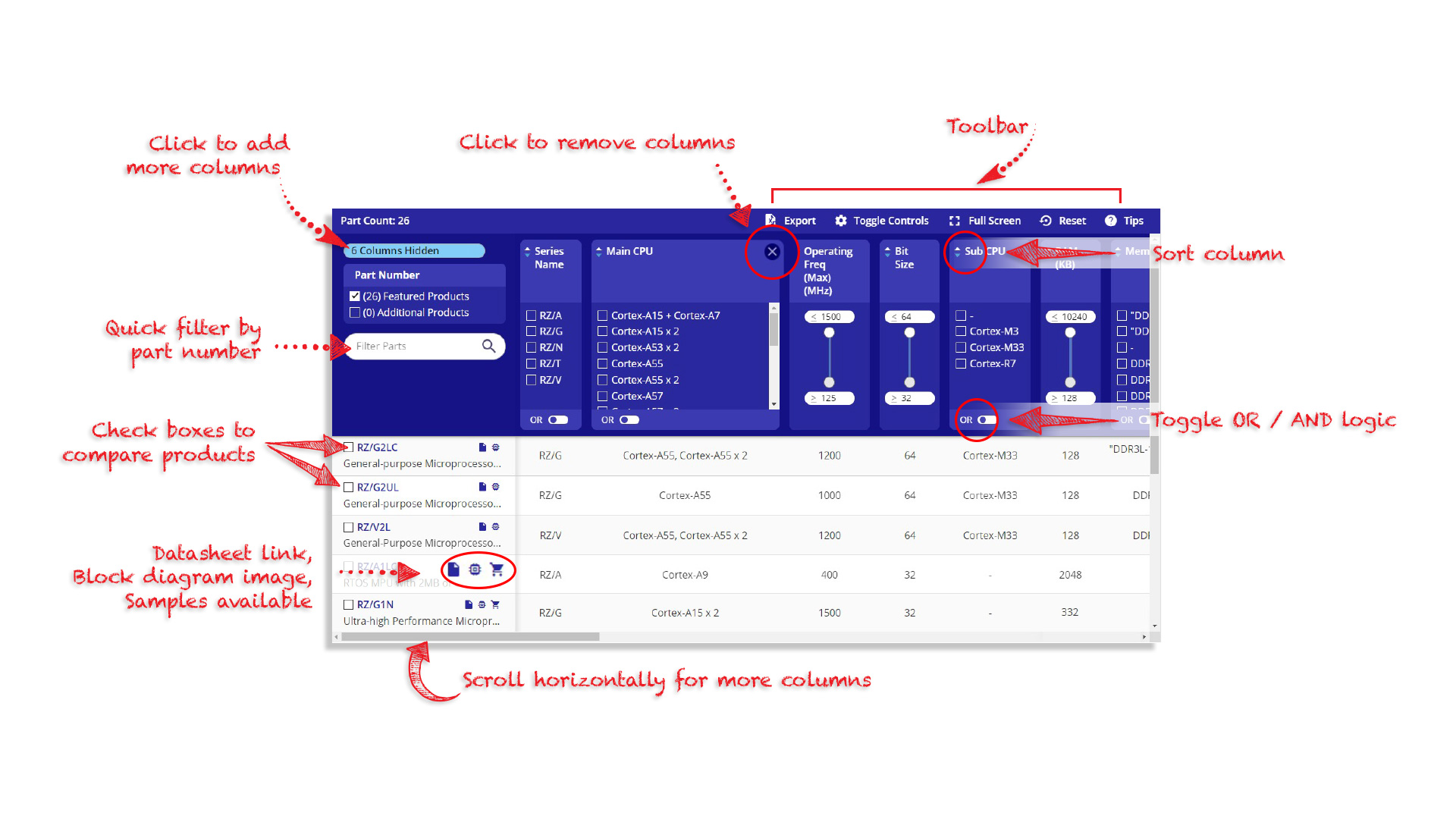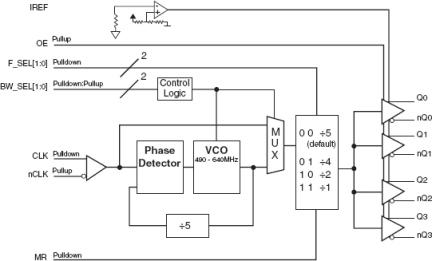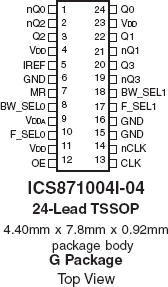-
-
-
Design Resources
- Design & Development
- Featured Design Tools
- Partners
- Content & Training
-
Support
-
Support Forums
Get help from our expert Renesas technical staff and community.
- Technical Support
- Training & Events
- Quality & Packaging
-
Support Forums
-
Sample & Buy
-
Buy Direct from Renesas
Customers can now choose the convenience of buying direct from Renesas.
- Ordering Resources
-
Buy Direct from Renesas
871004I-04
circleObsoleteDifferential-to-0.7V Differential PCI Express® Jitter Attenuator
Overview
Description
The 871004I-04 is a high performance Differential-to-0.7V Differential Jitter Attenuator designed for use in PCI Express®™ systems. In some PCI Express® systems, such as those found in desktop PCs, the PCI Express® clocks are generated from a low bandwidth, highphase noise PLL frequency synthesizer. In these systems, a jitter attenuator may be required to attenuate high frequency random and deterministic jitter components from the PLL synthesizer and from the system board. The 871004I-04 has 3 PLL bandwidth modes: 200kHz, 400kHz and 800kHz. The 200kHz mode will provide maximum jitter attenuation, but with higher PLL tracking skew and spread spectrum modulation from the motherboard synthesizer may be attenuated. The 400kHz provides an intermediate bandwidth that can easily track triangular spread profiles, while providing good jitter attenuation. The 800kHz bandwidth provides the best tracking skew and will pass most spread profiles, but the jitter attenuation will not be as good as the lower bandwidth modes. The 871004I- 04 can be set for different modes using the F_SEL pins as shown in Table 3C. The 871004I-04 uses IDT's 3rd Generation FemtoClockTM PLL technology to achieve the lowest possible phase noise. The device is packaged in a 24 Lead TSSOP package, making it ideal for use in space constrained applications such as PCI Express® add-in cards.
Features
- Four 0.7V differential output pairs
- One differential clock input
- CLK and nCLK supports the following input types: LVPECL, LVDS, LVHSTL, SSTL, HCSL
- Output frequency range: 98MHz - 640MHz
- Input frequency range: 98MHz - 128MHz
- VCO range: 490MHz - 640MHz
- Cycle-to-cycle jitter: 19ps (typical)
- Additive phase jitter, RMS: 0.23ps (typical)
- 3.3V operating supply
- Three bandwidth modes allow the system designer to make jitter attenuation/tracking skew design trade-offs
- -40°C to 85°C ambient operating temperature
- Available in lead-free (RoHS 6) package
Comparison
Applications
Design & Development
Models
ECAD Models
Schematic symbols, PCB footprints, and 3D CAD models from SamacSys can be found by clicking on products in the Product Options table. If a symbol or model isn't available, it can be requested directly from the website.

Product Options
Pkg. Type |
Lead Count (#) |
Temp. Grade |
Pb (Lead) Free |
Carrier Type |
Buy / Sample |
|
|---|---|---|---|---|---|---|
| Part Number | ||||||
| TSSOP | 24 | I | No | Tube | ||
| TSSOP | 24 | I | Yes | Tube | ||
| TSSOP | 24 | I | Yes | Reel | ||
| TSSOP | 24 | I | No | Reel |

Tips for Using This Parametric Table:
- Hide Filters button in header: Collapse or expands filters
- Column sort buttons in header: Sort Column alphabetically / numerically descending or ascending
- Reset button in header: Reset all filters to the page default
- Full Screen button in header: Expand the table to full screen view (user must close out of full screen before they can interact with rest of page)
- Export button in header: Export the filtered results of the table to an Excel document
- Filter parts search bar in header: Type to filter table results by part number
- Hide column button in column headers: Select to hide columns in table
- AND / OR toggle switches in header: Toggles the logic of this particular filter to be “AND” or “OR” logic for filtering results
- Multiselect checkboxes at beginning of each row in table: Select these checkboxes to compare products against each other
- Document icon next to product name in row: View the featured document for this product
- Chip icon next to the right of the document icon in row: View the block diagram for this product
- Cart icon to the right of the chip icon: Indicates that samples are available for this product


